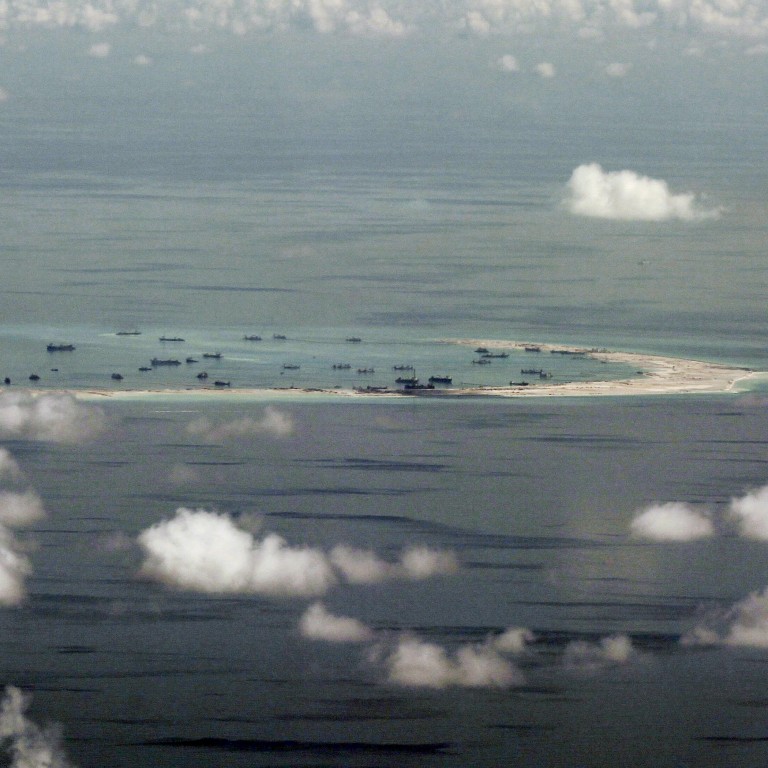
Beijing's South China Sea island building has polarised Asean nations
Diplomats stop short of calls to demand China stop islands' militarisation
With a two-day late joint communiqué, foreign ministers of Southeast Asian countries have shown not only worries over Beijing's island building in the South China Sea, but also a more polarised regional body that is failing to back up its words with action.
In the statement dated August 4, but released only on Thursday night, top diplomats from the Association of South East Asian Nations (Asean) said land reclamations in the strategic body of waters had "increased tensions" in the region, despite China's protests. But it stopped short of earlier calls by the Philippines and United States for all claimants to adopt Washington's proposal to halt reclamation, construction and militarisation.
The delay was a result of wrangling over how strong the wording about China's behaviour should be, diplomats have said. And it reminded some analysts of the non-issuance of such a document in 2012, when Cambodia was in the Asean chair.
"No Asean chair wants to be another Cambodia," said Xie Yanmei, a senior China analyst at the International Crisis Group.
The 2012 failure was widely interpreted to be a result of China revealing its hand to break Asean's unity. It was the only time in the organisation's 48-year history that foreign ministers failed to agree on a joint communiqué.
Since then, the regional body had made a consensus to avoid a repeat of the experience, Xie said. Otherwise "it would appear that the organisation would be on the verge of collapse".
Yet even with a closing statement, Xie said the organisation had shown limitations in engaging with China over the South China Sea disputes by failing to unite behind actions and expressing only passive concerns.
"It has criticised the Chinese actions, but it could not criticise China directly," she said.
The organisation has never directly named China over its South China Sea activities in the closing statements, released annually at the Asean Regional Forum. The forum allows consultations on security dialogue in the Asia Pacific involving Asean's 10 members and other powers such as China, the US and Japan.
China began building artificial islands in the disputed Spratly Islands about two years ago, but attracted international attention only last year. Other claimants, and the US and Japan, have criticised China's actions.
The reclamations had made Asean more polarised, said Carl Thayer, an emeritus professor at The University of New South Wales, in Australia. Nations such as Singapore, Malaysia and Indonesia, which were less critical of China's role, were now pressing the issue harder, Thayer said.
"The polarisation is that people who are upset - and there are more of them than before - really press that issue," he said.
China's foreign minister, Wang Yi , said at last week's forum that China had stopped building the islands. His ministry said in June that China would stop reclamation soon. But analysts have said Beijing had moved on from reclamation to building infrastructures on the islands.
Kang Lin, a researcher at China's National Institute for South China Sea Studies, said Beijing opposed efforts to raise the maritime disputes in a Asean joint communiqué as it was "only an issue with some of the member states, not all of them".
Beijing had long refused to engage with Asean on the South China Sea disputes and, instead, said the issue should be settled bilaterally between claimants.
However, Kang said Beijing had realised in recent years it was impractical to insist on resolving South China Sea issues bilaterally and had begun to accept negotiating through Asean over some aspects of the dispute.
